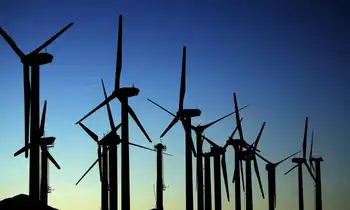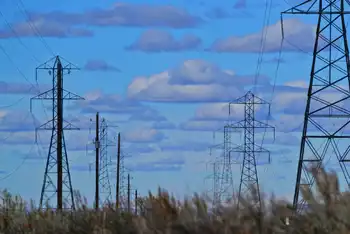TTC Winter E-Bike and E-Scooter Ban addresses lithium-ion battery safety, mitigating fire risk on Toronto public transit during cold weather across buses, subways, and streetcars, while balancing micro-mobility access, infrastructure gaps, and evolving regulations.
Key Points
A seasonal TTC policy limiting lithium-ion e-bikes and scooters on transit in winter to cut battery fire risk.
✅ Targets lithium-ion fire hazards in confined transit spaces
✅ Applies Nov-Mar across buses, subways, and streetcars
✅ Sparks debate on equity, accessibility, and policy alternatives
The Toronto Transit Commission (TTC) Board recently voted to implement a ban on lithium-ion-powered electric bikes (e-bikes) and electric scooters during the winter months, a decision that reflects growing safety concerns. This new policy has generated significant debate within the city, particularly regarding the role of these transportation modes in the lives of Torontonians, and the potential risks posed by the technology during cold weather.
A Growing Safety Concern
The move to ban lithium-ion-powered e-bikes and scooters from TTC services during the winter months stems from increasing safety concerns related to battery fires. Lithium-ion batteries, commonly used in e-bikes and scooters, are known to pose a fire risk, especially in colder temperatures, and as systems like Metro Vancouver's battery-electric buses expand, robust safety practices are paramount. In recent years, Toronto has experienced several high-profile incidents involving fires caused by these batteries. In some cases, these fires have occurred on TTC property, including on buses and subway cars, raising alarm among transit officials.
The TTC Board's decision was largely driven by the fear that the cold temperatures during winter months could make lithium-ion batteries more prone to malfunction, leading to potential fires. These batteries are particularly vulnerable to damage when exposed to low temperatures, which can cause them to overheat or fail during charging or use. Since public transit systems are densely populated and rely on close quarters, the risk of a battery fire in a confined space such as a bus or subway is considered too high.
The New Ban
The new rule, which is expected to take effect in the coming months, will prohibit e-bikes and scooters powered by lithium-ion batteries from being brought onto TTC vehicles, including buses, streetcars, and subway trains, even as the agency rolls out battery electric buses across its fleet, during the winter months. While the TTC had previously allowed passengers to bring these devices on board, it had issued warnings regarding their safety. The policy change reflects a more cautious approach to mitigating risk in light of growing concerns.
The winter months, typically from November to March, are when these batteries are at their most vulnerable. In addition to environmental factors, the challenges posed by winter weather—such as snow, ice, and the damp conditions—can exacerbate the potential for damage to these devices. The TTC Board hopes the new ban will prevent further incidents and keep transit riders safe.
Pushback and Debate
Not everyone agrees with the TTC Board's decision. Some residents and advocacy groups have expressed concern that this ban unfairly targets individuals who rely on e-bikes and scooters as an affordable and sustainable mode of transportation, while international examples like Paris's e-scooter vote illustrate how contentious rental devices can be elsewhere, adding fuel to the debate. E-bikes, in particular, have become a popular choice among commuters who want an eco-friendly alternative to driving, especially in a city like Toronto, where traffic congestion can be severe.
Advocates argue that instead of an outright ban, the TTC should invest in safer infrastructure, such as designated storage areas for e-bikes and scooters, or offer guidelines on how to safely store and transport these devices during winter, and, in assessing climate impacts, consider Canada's electricity mix alongside local safety measures. They also point out that other forms of electric transportation, such as electric wheelchairs and mobility scooters, are not subject to the same restrictions, raising questions about the fairness of the new policy.
In response to these concerns, the TTC has assured the public that it remains committed to finding alternative solutions that balance safety with accessibility. Transit officials have stated that they will continue to monitor the situation and consider adjustments to the policy if necessary.
Broader Implications for Transportation in Toronto
The TTC’s decision to ban lithium-ion-powered e-bikes and scooters is part of a broader conversation about the future of transportation in urban centers like Toronto. The rise of electric micro-mobility devices has been seen as a step toward reducing carbon emissions and addressing the city’s growing congestion issues, aligning with Canada's EV goals that push for widespread adoption. However, as more people turn to e-bikes and scooters for daily commuting, concerns about safety and infrastructure have become more pronounced.
The city of Toronto has yet to roll out comprehensive regulations for electric scooters and bikes, and this issue is further complicated by the ongoing push for sustainable urban mobility and pilots like driverless electric shuttles that test new models. While transit authorities grapple with safety risks, the public is increasingly looking for ways to integrate these devices into a broader, more holistic transportation system that prioritizes both convenience and safety.
The TTC’s decision to ban lithium-ion-powered e-bikes and scooters during the winter months is a necessary step to address growing safety concerns in Toronto's public transit system. Although the decision has been met with some resistance, it highlights the ongoing challenges in managing the growing use of electric transportation in urban environments, where initiatives like TTC's electric bus fleet offer lessons on scaling safely. With winter weather exacerbating the risks associated with lithium-ion batteries, the policy seeks to reduce the chances of fires and ensure the safety of all transit users. As the city moves forward, it will need to find ways to balance innovation with public safety to create a more sustainable and safe urban transportation network.
Related News












